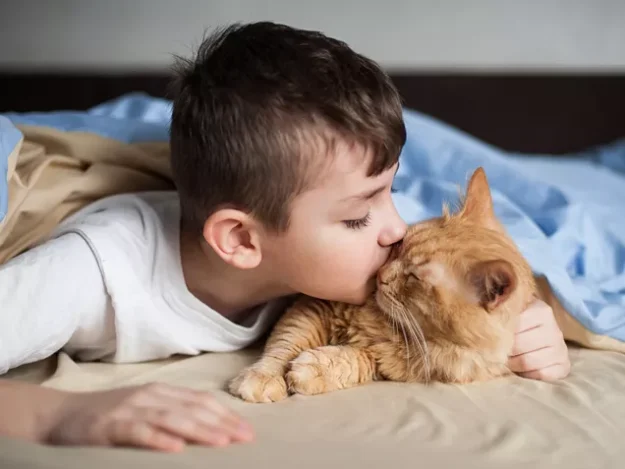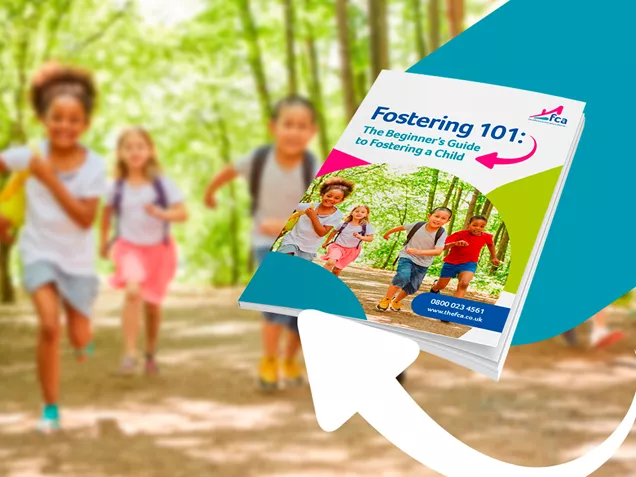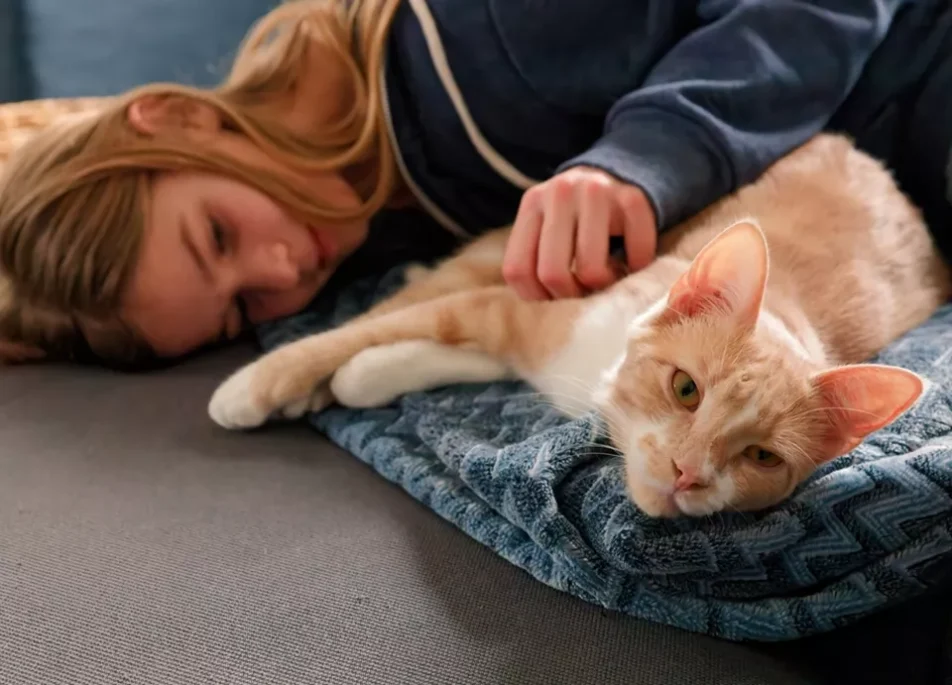Can I foster if I have a pet?
Yes, absolutely! Animals can help children to relax and settle into a new home.
Many children who come into care can be distrustful and struggle at first to form positive attachments with the adults who care for them due to past trauma. Through no fault of their own, they may have had many moves in a short space of time from different foster families, and so feel anxious about a new home. This is where a pet can bring a sense of calm and provide a great source of companionship to a young person in care.
Matching a child with you and your pets
As part of your assessment, we’ll complete a pet questionnaire as they too will be part of this process.
If you do have pets, prior to becoming a foster carer, a full vet check is done to make sure it is safe to place a young person in your household with that pet. Some young people can be scared of animals or may be allergic to types of pet hair. In this case, it may not be suitable to place that young person in your home.
The benefits of pets to foster children and young people
Here are just some of the great ways dogs and other pets can be beneficial for children and young people in care:
They can reduce stress – pets can help lower your blood pressure and heart rate by petting and cuddling them.
Improve emotional wellbeing –whether it’s snuggling on the sofa, helping with their care, or playing together, pets are great in helping a child with caring and empathy skills and creating a loving bond.
Help the family stay active – if you have a dog it’s a great way to get everyone out for a walk, burn off some energy and let the young person and dog run around.


Are you thinking of fostering?
Download the FCA’s complete beginner’s guide to fostering a child. Find out more on how to foster a child and the process involved.
Frequently asked questions
Who can apply to become a foster parent?
Anyone can apply to foster with us. We welcome foster carers from all walks of life; no matter what your gender, age, race or sexual orientation. We do have criteria though:
- You need a spare room
- You need to be over 21
- You ideally need to commit to fostering full time
- You need to have British Citizenship or indefinite leave to remain
Is there a maximum age to foster?
There really is no maximum age limit for fostering with us and many of our foster parents continue to foster well into their 70s.
All we ask is that you’re still able to fulfill the more active side of fostering – such as the school run and outdoor activities – and that you can do so with enthusiasm and energy.
Can I foster if I’m single?
Yes, you don’t have to be married or living with a partner to foster. In fact, being a solo foster parent can be an advantage in some cases where a child or young person can only be placed with a single male or female foster parent.
Do I need to own my own home to foster?
No you don’t, if you live in rented accommodation you will need permission from your landlord.
Get in touch
Whether you’re ready to start your journey or just want to chat, contact our fostering team today and we’ll answer all your questions.
Enquiry Form
The company takes the requirements of GDPR seriously in ensuring the privacy and lawful processing of personal data provided to us by you. Please view our privacy notice which explains how the company will manage and use your personal data. This site is protected by reCAPTCHA and the Google Privacy Policy and Terms of Service apply.

